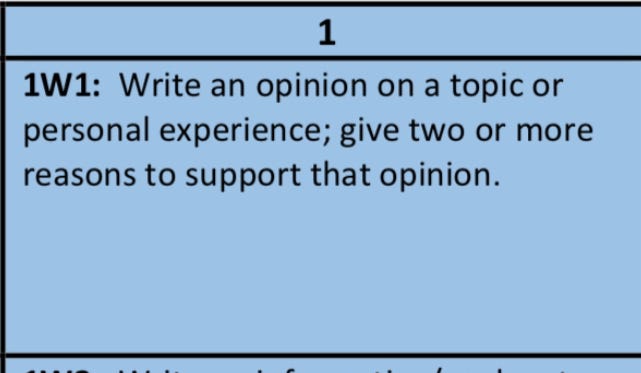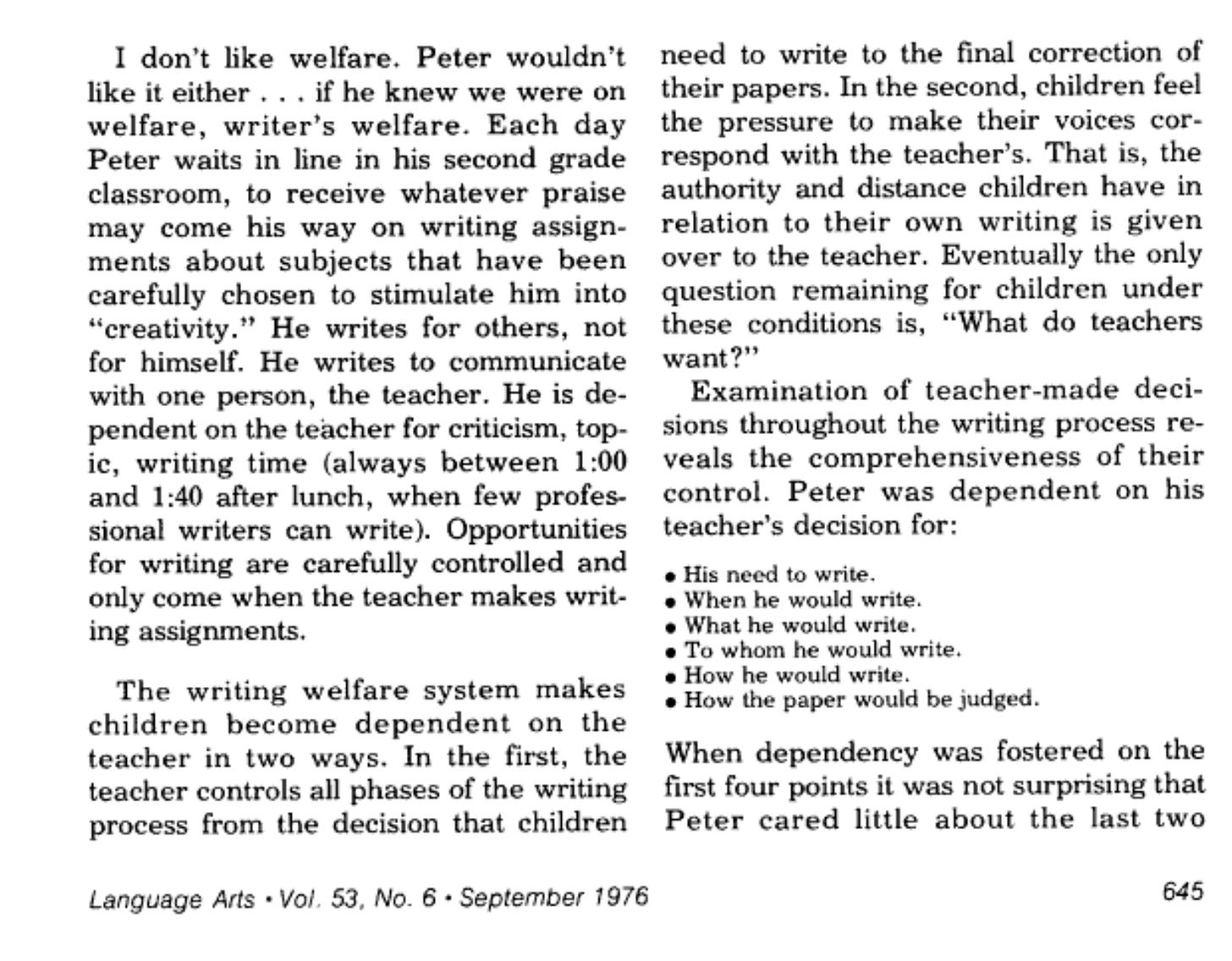Reading and writing effectively can spell real work. As the fruits of literacy become more consequential in life’s lottery year by year, a willingness to exert effort voluntarily in the face of challenging text becomes increasingly central to developing young learners. Reading and writing experiences in academic settings become more intense in task expectations, not less, and assume persistence, stamina, and strategy in the performance of students. Simply doing enough reading, generating thoughtful writing in the journal, revising the paper—as the grades fly by, the task magnifies.
Unfortunately, as teachers become acclimated to ever higher literacy demands for ever younger children, especially those demands scribed into state academic standards per grade level which impact public test scores, the quest for the perfect assignment or exercise or instructional prescription shifts into high gear. Accountability has a way of focusing the mind.
Assignments must be made in classrooms. Students must be guided to do developmentally productive mental work. Furthermore, schools must have shared understanding of curriculum across wide institutional spaces. But assignments become ineffective to the degree that students are left out, that the institution has no local, unique vision for its community, no room for customization. Authority for the details of assignments can be shared, options can be offered, especially in literacy learning activities. It’s tough for sure when a more or less legally binding state standard reads like this:
So we should expect first graders to identify their opinion on a given topic (broccoli? a Disney movie? Does it matter?)? Then, even if one reason does the job (I love smooth ice cream on my tongue), there must be two? Read liberally, this standard expects first graders to be able to write a text explaining why they hold an opinion about something.
We could easily do this at home. Write me a note letting me know which cereal you prefer, and tell me why, and, hey, go beyond ‘it tastes good.’ Work with me. Which car we just saw at the dealer seemed coolest to you? Why? My kid in first grade would have jumped at the chance.
Around the time in the early 1980s when my brain became obsessed with reading and writing as gateways to the kingdom, I read Donald Graves. By the way, Grave’s book Writing: Teachers and Children at Work is a superb read. These words had a profound impact on my emerging perspective on my role as a teacher:
Graves’ last few words bear intense scrutiny. Why should Peter care about this work? Whose work is this? An important pivot point for voluntary motivation is choice; another is legitimate purpose. Teachers have bureaucratic restraints on what they must do with assignments whether we like it or not. Parents and caretakers have no such constraints. Peter can write you notes and illustrate them with pictures all he wants.




